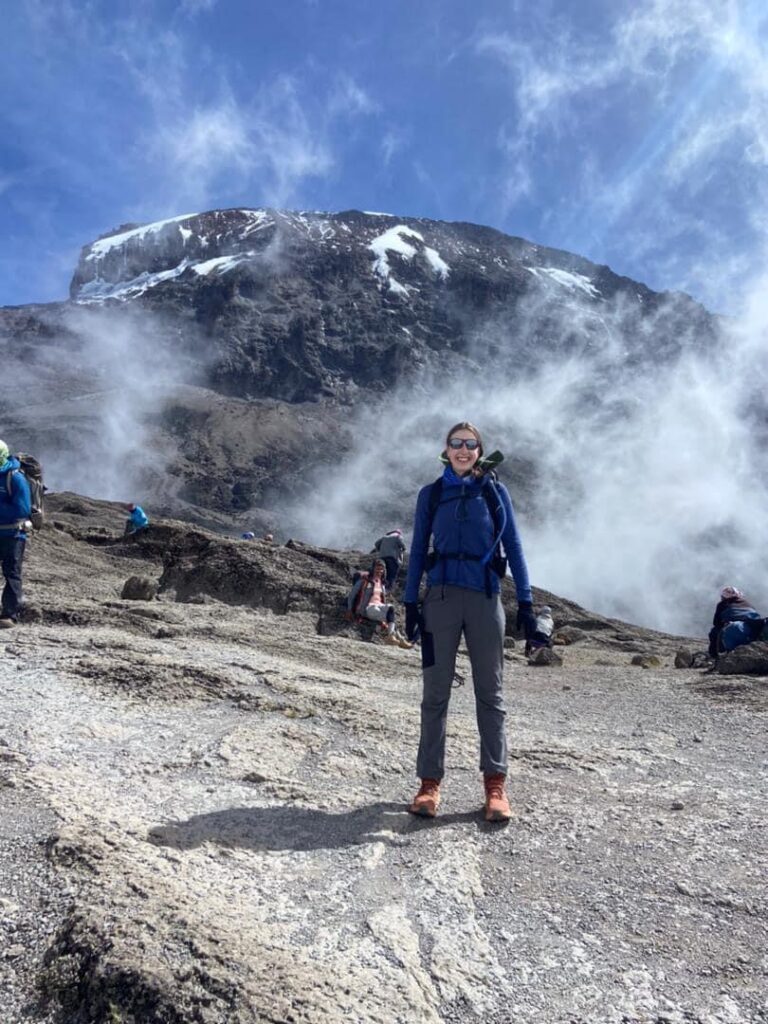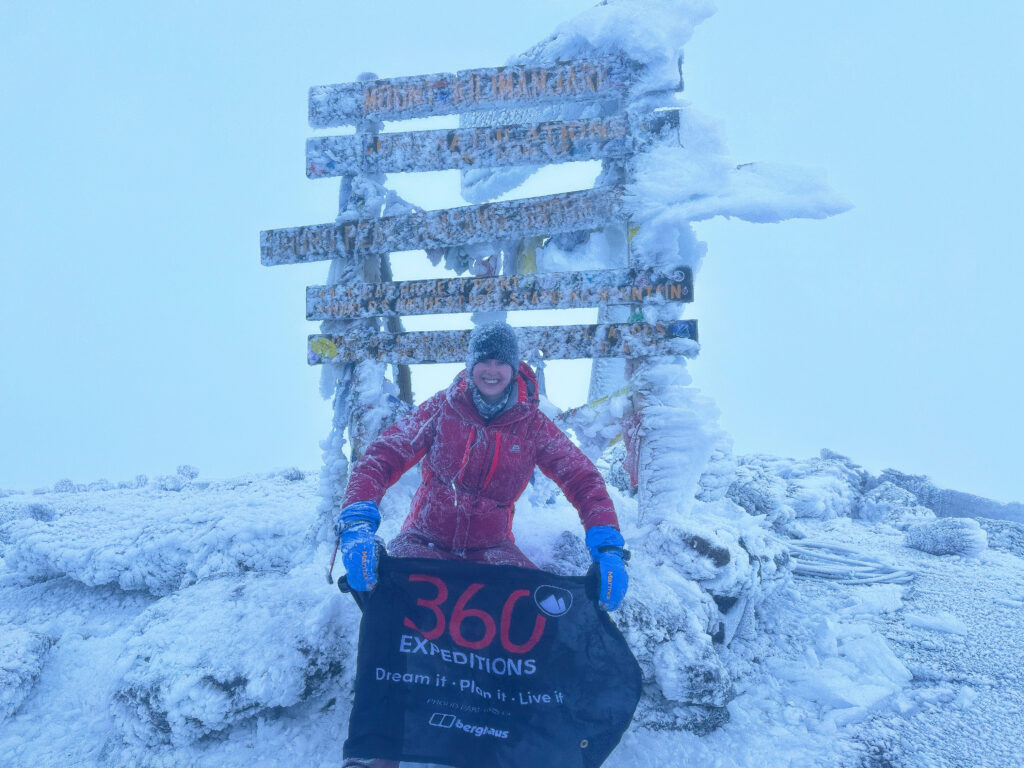Hiking to the peak of Mt. Kilimanjaro has been a dream of mine for many years and on Sunday 25th February 2024, at 7:15am, my dream became a reality. This makes me the first person with Type 1 Diabetes and AVP-Deficiency to stand at the summit, but hopefully not the last!
I was diagnosed with Type 1 Diabetes on 14th March 2019. At the time I was playing international hockey, however due to the volume and intensity of training I decided that it was too challenging to try and manage my diabetes with elite-level sport.
Then in January 2021 I was diagnosed with Arginine Vasopressin Deficiency (AVP-D). I was a complex medical case as the symptoms I presented with were assumed to be due to my blood sugar levels. This condition is where our bodies don’t absorb fluids naturally. Instead, fluids we take in are released as very dilute urine from 3 to over 20 litres in 24 hours. Without sufficient fluids, we can quickly get severely dehydrated. Taking desmopressin, a synthetic hormone medication helps keep fluids in our bodies, but we have to consciously monitor our fluids to make sure we don’t have too much or too little fluid so our organs function properly. In addition, strenuous exercise, such as hiking, can cause heavy sweating and therefore the loss of electrolytes (including sodium), so it is important to keep those in balance.
Having these 2 chronic illnesses caused my mental health to plummet over the past 5 years as I massively struggled to envisage what life would now look like and how I could regain my independence, confidence, and happiness in life. This is when I fell in love with hiking. I bought myself a campervan in order to tour the UK and I quickly started planning trips around mountains that I could hike.
Having chronic illnesses can often mean you question your ability to take on challenges that others may not be as apprehensive about. However, I didn’t want fear to get in the way of me enjoying the experiences that life has to offer.

The challenge of Kilimanjaro is not to be underestimated. There were however aspects that I couldn’t prepare for and had to discover whilst on the trek. I found at higher altitudes that my insulin wasn’t working as effectively so increased my baseline for the duration of the trip. When I started to experience symptoms of low sodium (cramps and weakness) I ensured that I skipped a dose of desmopressin and drank to thirst. Whilst diabetes meters are very common and help me to manage my diabetes well, a home sodium meter is currently not available, so this makes it challenging to stay safe. On the last two days of the trek my glucose levels were low due to the strenuous nature of summit night and the effect it had on my recovering body. In addition, descending in altitude very quickly meant my insulin started to work more effectively again. I therefore had a couple of hypoglycaemic episodes but managed to resolve them without any trouble.
Whilst not everyone has a dream of hiking Kilimanjaro, I hope this shows that having a chronic illness does not have to limit the extent to which you can push yourself mentally and physically. I learned so much about myself on this trip and it has genuinely been the best experience of my life. I’ve made new friends, learned about a totally different culture and way of life, witnessed unbelievable sights, pushed myself out of my comfort zone and achieved things that I never thought I could. Mental resilience is something you are forced to develop when living with a medical condition and I therefore think this made me well equipped to tackle the mental aspect of Kilimanjaro.








